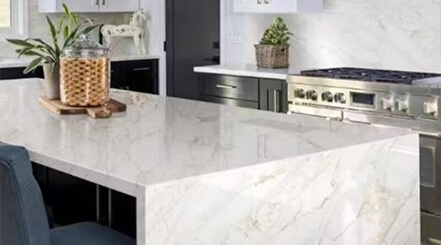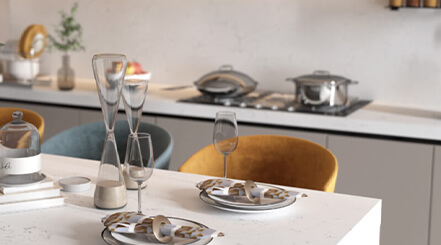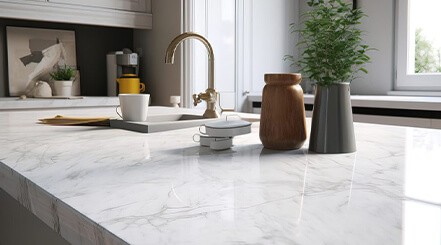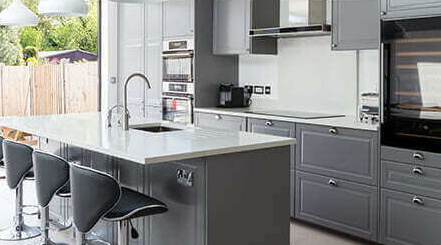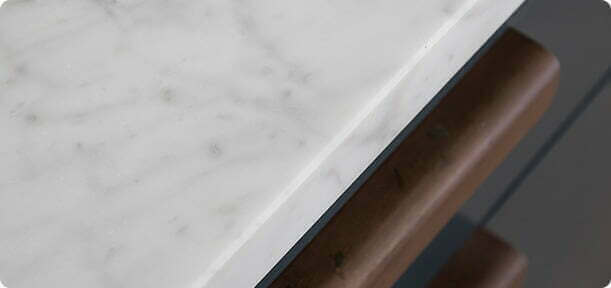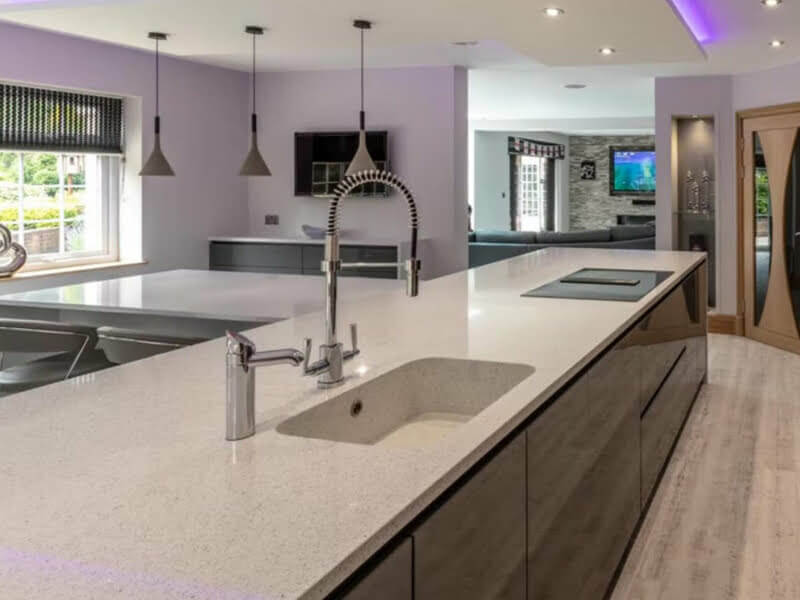
Quartz or Granite Worktops
What's the best worktop to choose?
Quartz and Granite Worktops
Welcome to our expert guide on choosing the perfect worktop material for your kitchen.
When it comes to durability, aesthetics, and practicality, two popular options stand out: quartz and granite worktops.
In this article, we will explore the unique properties of both materials, discuss their benefits and potential drawbacks, compare them in terms of durability, maintenance requirements, aesthetic appeal, and cost.
By the end of this guide, you will have all the information you need to make an informed decision based on your individual needs and preferences.
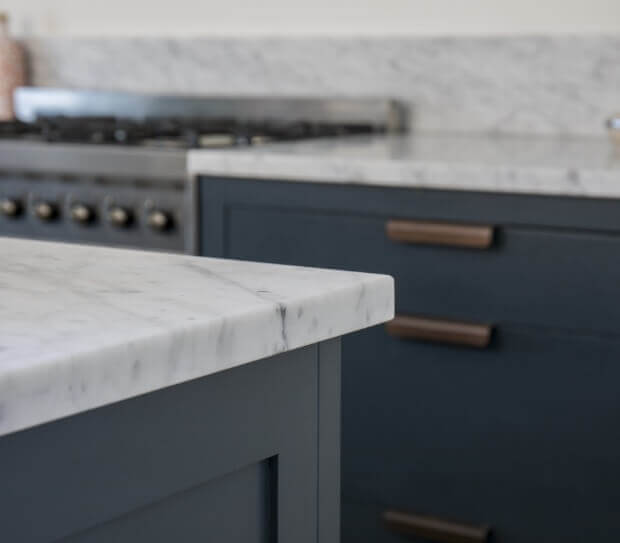
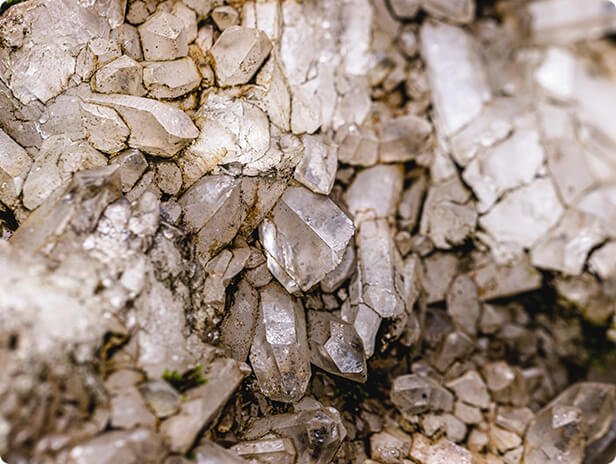
Understanding Quartz Worktops
Quartz worktops have surged in popularity, and for good reason. As experts in this field, We can confidently say that quartz worktops are a fantastic choice for any kitchen or bathroom renovation project.
Let’s delve deeper into what makes quartz such a remarkable material.
Description and Properties of Quartz
- Quartz is a custom-made stone composed of natural quartz crystals combined with resins and pigments.
- The combination of these elements creates a non-porous surface that is highly resistant to stains, scratches, and heat.
- Unlike natural stones like granite, quartz does not require sealing as it is already sealed during the manufacturing process.
- It comes in various colours, patterns, and finishes to suit different design preferences.
Benefits of Quartz Worktops
- Durability: Quartz worktops are incredibly durable and can withstand daily wear and tear without losing their shine or lustre.
- Stain Resistance: Thanks to its non-porous nature, quartz repels liquids effectively, making it resistant to staining from common household substances like coffee, wine, or oil spills.
- Scratch Resistance: The resin component in quartz adds strength to the material, making it highly scratch-resistant even when subjected to sharp utensils or accidental impacts.
- Heat Resistance: While caution should always be exercised with hot pans directly from the stove or oven onto any countertop surface (use trivets!), quartz has excellent heat resistance properties compared to other materials like laminate.

Get a FREE Quote for Your Project
Got a project in mind and considering a Quartz or Granite Worktop? Get a FREE quote from us and see how much you can save.
Understanding Granite Worktops
Granite worktops have become a staple in modern kitchen design, prized for their durability, beauty, and timeless appeal.
Understanding the various aspects of granite worktops can help you make an informed decision when considering this natural stone for kitchen or bathroom project.
Description and Properties of Granite
- Granite is a type of igneous rock formed from cooled magma, composed primarily of quartz, feldspar, and mica, among other minerals.
- These minerals give granite its unique and varied patterns, with colours ranging from subtle earth tones to vibrant blues and greens.
- Each granite slab is distinct, with its own individual pattern and colour variation, which adds to its appeal.
Benefits of Granite Worktops
- Durability: Granite is renowned for its toughness and resistance to scratching, chipping, and staining when properly sealed. This makes it ideal for the high-traffic environment of a kitchen.
- Resistance To Heat: Granite worktops can withstand high temperatures, making it safe to place hot pots and pans directly on the surface without damage.
- Low Maintenance: When sealed correctly, granite is resistant to bacteria and staining, which allows for easy cleaning with just soap and water.
- Long Lasting: With proper care, granite worktops can last a lifetime, making them a cost-effective choice in the long run.
Choosing Between Quartz and Granite Worktops
When it comes to deciding between quartz and granite worktops, it’s important to understand the key differences in these two popular materials.
Comparing Quartz Vs Granite
- Natural Beauty: Both quartz and granite offer stunning visual appeal, but in different ways. While granite features unique patterns and colours formed from natural stone, quartz is a man-made material that can be customised to enhance its aesthetic appeal.
- Durability: Both materials are highly durable, but they have different strengths. Granite is known for its resistance to scratches, heat, stains, and impact damage – making it ideal for busy kitchens. On the other hand, quartz is non-porous which means it does not absorb liquids easily like wine or oil spills.
- Cost Considerations: When comparing costs between the two materials, it’s important to consider long-term maintenance as well as initial installation expenses. While granite may come at a higher cost upfront than some alternatives like laminate or wood surfaces, its long-lasting quality makes it a worthwhile investment for many homeowners.
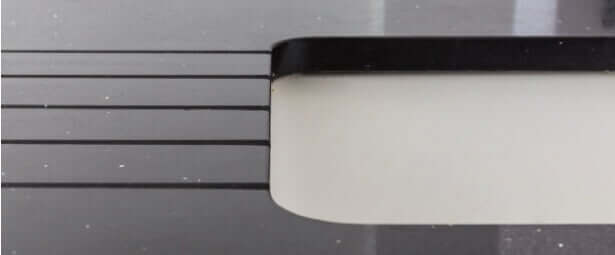
Comparative Analysis: Quartz vs Granite
Quartz v Granite: Which is the Best Worktop Material for You?
Choosing the perfect worktop material for your kitchen can be a tough decision: quartz or granite?
Each has its own unique qualities that will transform your kitchen. Let’s dive into the key differences between these two popular options.
Durability
- Quartz: Known for its exceptional durability, quartz worktops are made by combining natural quartz stone with resins to create a strong and resilient surface. This makes them highly resistant to scratches, stains, heat, and impact.
- Granite: While also highly durable due to its natural composition formed from molten magma deep within the earth’s crust, granite may be slightly more prone to chipping or cracking under heavy pressure compared to quartz.
Maintenance Requirements
- Quartz: One major advantage of quartz worktops is their low maintenance requirements. Unlike porous surfaces like granite that require regular sealing to prevent staining or bacterial growth, quartz surfaces are non-porous and do not require any special treatment.
- Granite: Although generally easy to maintain, granite does require periodic sealing (usually once a year) to protect against stains caused by spills or liquids penetrating into its porous surface.
Aesthetic Appeal
- Quartz: With modern technology advancements, manufacturers can produce quartz worktops in a wide range of colours and patterns that mimic the look of natural stone such as marble or granite. The consistency in color and pattern allows for greater design flexibility.
- Granite: Natural beauty is one of the main attractions of granite worktops. Each slab has its own unique veining patterns created by nature over millions of years which adds character and charm to any kitchen space.
Cost
- Quartz: Generally considered more affordable compared with Granite with the price determined by factors such as colour, pattern, brand and availability.
- Granite: Generally a little more than quartz. Depending on your application, granite may be better suited than quartz due to its durability and resilience against heavy pressure and heat from ovens.
In summary, both materials have their pros when it comes down to deciding what will best suit your needs – whether you prioritise durability and low maintenance requirements (quartz), or appreciate natural beauty and uniqueness (granite).
Ultimately, it depends on your individual needs and preferences!






